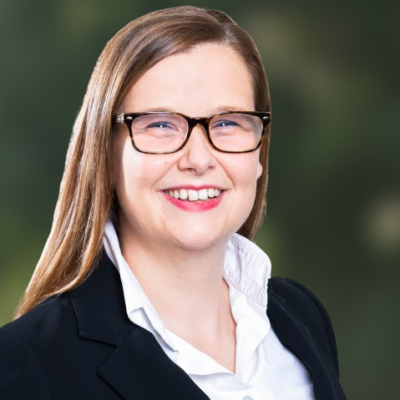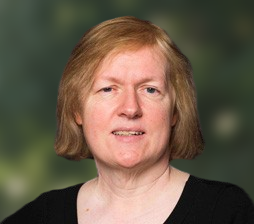04/05/2021
Sastry & Okpara v GMC [2021] EWCA Civ 623
Court of Appeal confirms that, in doctors’ appeals against decisions of the Medical Practitioners Tribunal, the High Court’s powers of intervention are not limited in the way suggested in in Bawa-Garba. That more restrictive approach is limited to appeals by the GMC (under s40A Medical Act 1983) and does not apply to appeals by doctors (under s40 Medical Act 1983)
In Bawa-Garba v General Medical Council [2019] 1 WLR 1929 the Court of Appeal considered the ability of an appellate court to interfere with a sanction of suspension imposed by the MPT when the GMC appealed seeking erasure. In those circumstances the Court of Appeal prefered deference to the MPT and held that the decision of the MPT on sanction was: “an evaluative decision based on many factors, a type of decision sometimes referred to as ‘a multi-factorial decision’. This type of decision, a mixture of fact and law, has been described as ‘a kind of jury question’ about which reasonable people may reasonably disagree: ……. It has been repeatedly stated in cases at the highest level that there is limited scope for an appellate court to overturn such a decision”
This led to significant concern for those representing doctors, and other healthcare practitioners, that it might lead to a similar limit on the ability of practitioners to appeal sanctions on the basis that they were too severe.
This concern has now been removed following the decision of the Court of Appeal in the joined appeals of Sastry & Okpara v GMC [2021] EWCA Civ 623 handed down on Friday 30 April 2021.
Dr Sastry and Dr Okpara both appealed to the High Court against sanctions of erasure by the MPT. In both cases the High Court applied the limited approach suggested by the Court of Appeal in Bawa-Garba. In Sastry May J had held that that “It would be wrong [for the Court to] to substitute its own untutored view for that of a panel drawn from the profession in question” and in Okpara Julian Knowles J had held that he could only intervene with a sanction decision “if (a) there was an error of principle in carrying out the evaluation, or (b) for any other reason, the evaluation was wrong, that is to say it was an evaluative decision which fell outside the bounds of what the adjudicative body could properly and reasonably decide”.
Both doctors again appealed and before the Court of Appeal it was argued by the GMC that the restrictive Bawa-Garba approach should be applied to appeals by both practitioners and the GMC alike. Against this it was argued for the doctors that the Bawa-Garba approach was limited to appeals by the GMC under section 40A and that the more permissive approach set out by the Privy Council in Ghosh v General Medical Council [2001] 1 WLR 1915 and by the Supreme Court in Khan v General Pharmaceutical Council [2017] 1 WLR 169 remained applicable to sanction appeals by practitioners.
The Court of Appeal agreed with the approach argued for by the doctors.
It summarised the approach to sanction appeals by doctors as follows:
Derived from Ghosh are the following points as to the nature and extent of the section 40 appeal and the approach of the appellate court:
- an unqualified statutory right of appeal by medical practitioners pursuant to section 40 of the 1983 Act;
- the jurisdiction of the court is appellate, not supervisory;
- the appeal is by way of a rehearing in which the court is fully entitled to substitute its own decision for that of the Tribunal;
- the appellate court will not defer to the judgment of the Tribunal more than is warranted by the circumstances;
- the appellate court must decide whether the sanction imposed was appropriate and necessary in the public interest or was excessive and disproportionate;
- in the latter event, the appellate court should substitute some other penalty or remit the case to the Tribunal for reconsideration.
The Court of Appeal further held that:
It follows from the above that the Judicial Committee of the Privy Council in Ghosh, approved by the Supreme Court in Khan, had identified the test on section 40 appeals as being whether the sanction was “wrong” and the approach at the hearing, which was appellate and not supervisory, as being whether the sanction imposed was appropriate and necessary in the public interest or was excessive and disproportionate.
In terms of the different of approach to appeals by the GMC and appeals by practitioners it held that:
We endorse the approach of the court in Bawa-Garba, as appropriate to the review jurisdiction applicable in section 40A appeals. We regard the approach of the court in section 40 appeals, as identified in Ghosh and approved in Khan, as appropriate in section 40 appeals which are by way of a rehearing.
We agree with the observations of Cranston J in Cheatle that, given the gravity of the issues, it is not sufficient for intervention to turn on the more confined grounds of public law review such as irrationality. The distinction between a rehearing and a review may vary depending upon the nature and facts of the particular case but the distinction remains and it is there for a good reason. To limit a section 40 appeal to what is no more than a review would, in our judgment, undermine the breadth of the right conferred upon a medical practitioner by section 40 and impose inappropriate limits on the approach hitherto identified by the Judicial Committee of the Privy Council in Ghosh and approved by the Supreme Court in Khan.
This decision therefore provides much needed clarity as to the correct approach that appellate courts should take when considering sanction appeals by practitioners.
Before the Court of Appeal, Dr Sastry was represented by Nicola Newbegin leading Ben Jones. They were instructed by Sarah Dodds of Medical Defence Shield.
Before the High Court, Dr Sastry was represented by Mary O’Rourke QC leading Nicola Newbegin, again instructed by Sarah Dodds of Medical Defence Shield.






